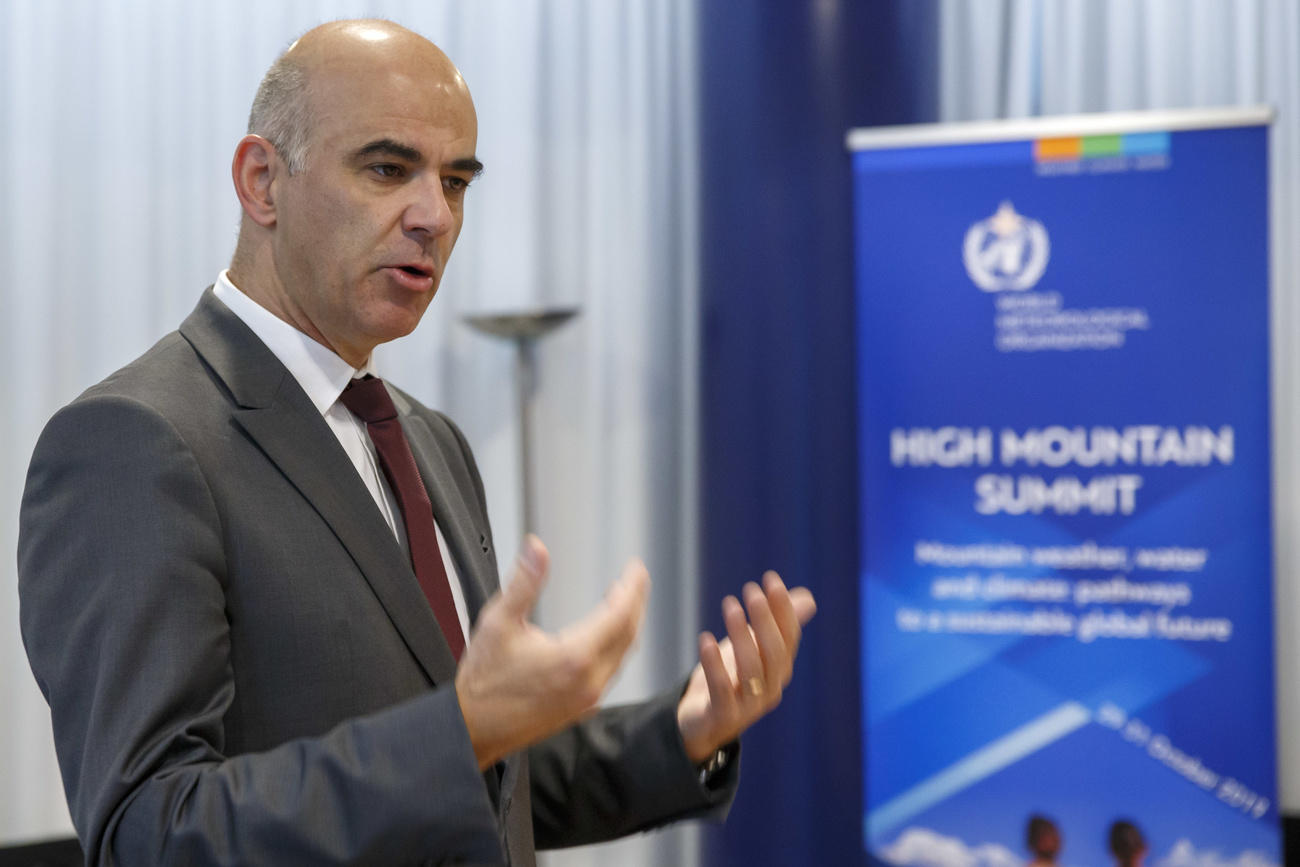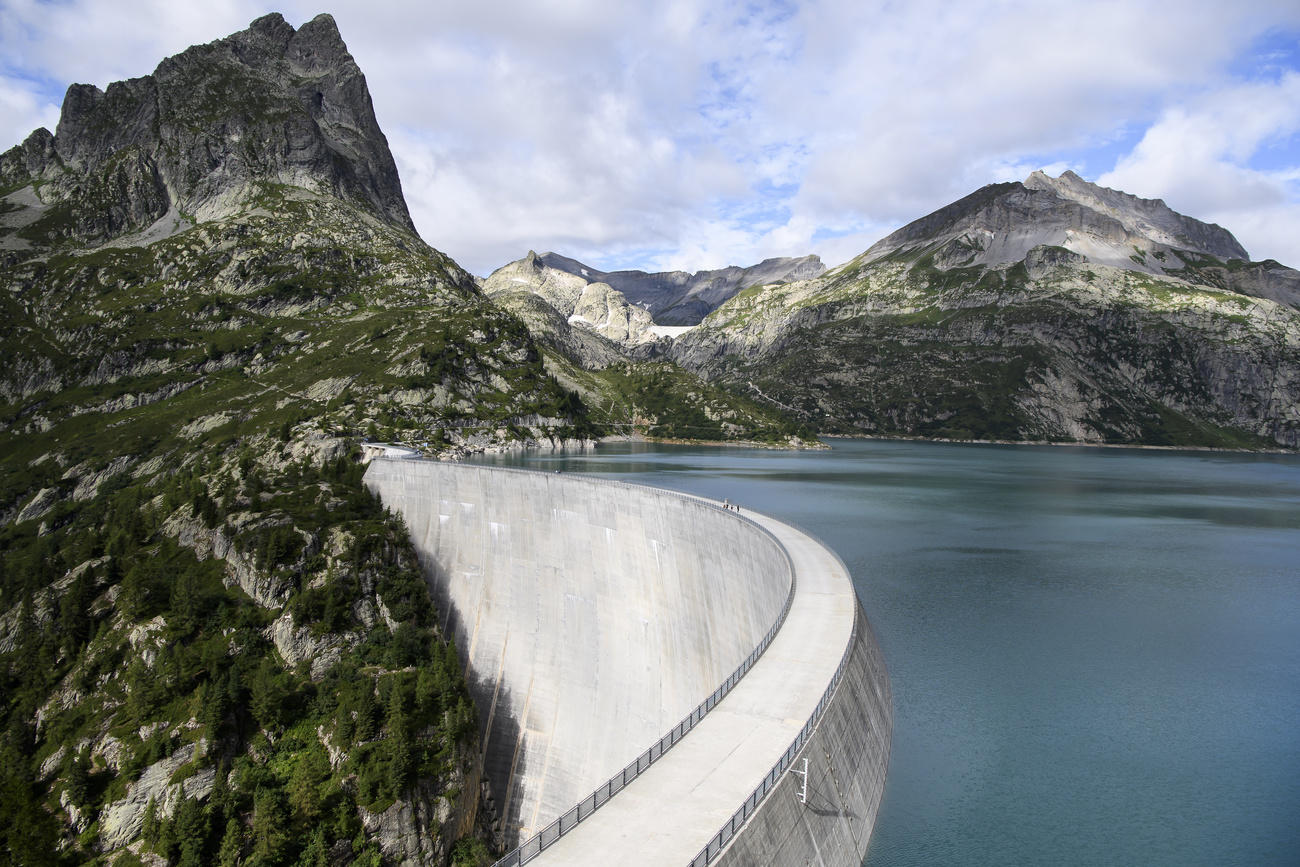
Swiss minister sounds climate alarm over high mountain regions

There is an urgent need to act on behalf of high mountain regions, which are disproportionately affected by global warming, Swiss Home Affairs Minister Alain Berset said on Tuesday.
Switzerland, two-thirds of which is covered by mountains, is on the climate change “frontline” and has been worse hit than many other regions, the minister told officials attending the first High Mountain SummitExternal link in Geneva, organized by the World Meteorological Organization (WMO)External link.
Over the past 150 years, average temperatures in Switzerland rose by 2 degrees Celsius, compared to 0.9C in the rest of the world.
The volume of glacier ice in the Swiss Alps melted by 2% over the past year, or 10% over the past five years, Berset added. Some 500 glaciers have disappeared in the Swiss Alps since the start of the 20th century, while the remaining 4,000 risk losing 90% of their volume by 2100.
Berset said the Paris climate accord was an important “turning point” in global awareness, but concrete measures to reduce carbon dioxide emissions had to be implemented now as “time is running out”.
“Seventy-seven countries, including Switzerland, have committed to eliminating CO2 by 2050. It’s easy to set such objectives but we need to implement them,” he declared.
Almost 200 officials from around the world are meeting in Geneva this week at the first High Mountain Summit to identify priority actions to support more sustainable development, disaster risk reduction and climate change adaptation both in high-mountain areas and downstream.
Melting mountains
Mountain regions cover about a quarter of the Earth’s land surface and are home to around 1.1 billion people. But glaciers, snow, and permafrost are increasingly vulnerable to the effects of constantly rising global temperatures – threatening food security, freshwater supply and river transportation, says WMO. Iconic peaks such as Mount Everest, Mont Blanc, Kilimanjaro and the Rocky Mountains are all affected.
+ The Aletsch Glacier could lose half its volume by 2100
“Accelerating glacier retreat and receding ice and snow cover is perhaps the most visible sign of climate change. There has been a boost in the melting of 31 major glaciers, especially during the past two decades,” said WMO Secretary-General Petteri Taalas.
Officials in Geneva will discuss ways of improving data exchange between affected high mountain regions and hope to create a roadmap to improve hydrological and meteorological forecasting services and climate and early warning systems to address water and hazard impacts and management.

More
Shrinking glaciers to make room for power generation

In compliance with the JTI standards
More: SWI swissinfo.ch certified by the Journalism Trust Initiative






























You can find an overview of ongoing debates with our journalists here . Please join us!
If you want to start a conversation about a topic raised in this article or want to report factual errors, email us at english@swissinfo.ch.